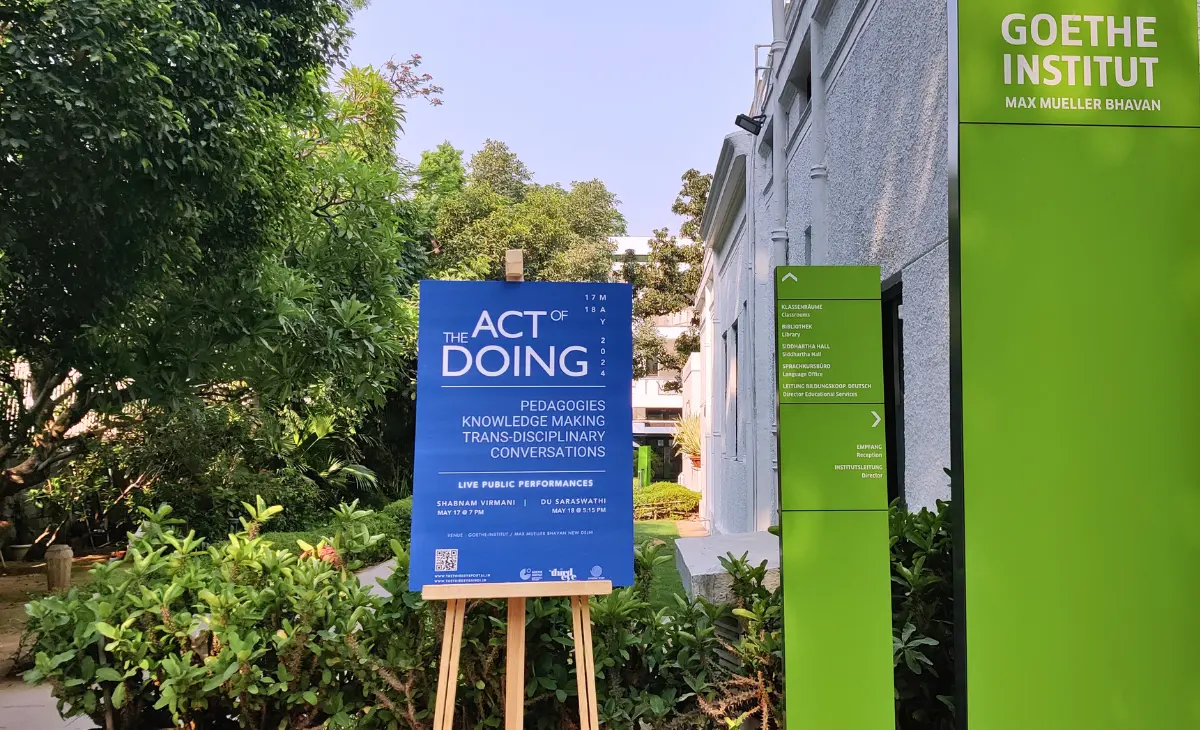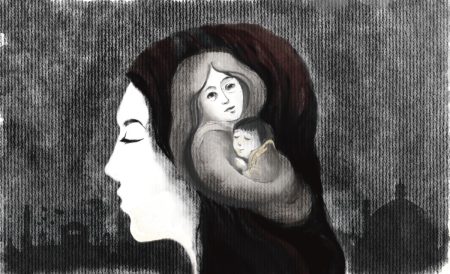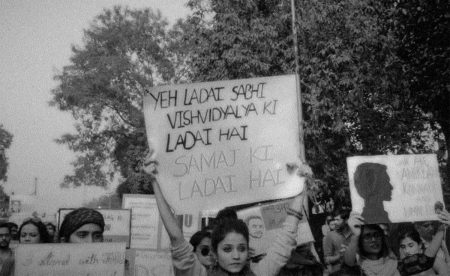A day that is ordinary? A day within the everyday? Feminists have theorised the everyday extensively. Everyday is when the doing happens. The work is done. The cooking, the editing of the draft, the googling, the waiting for the eggs to boil, legwork, emails, paying of bills, waiting with the camera as the time lapse happens, finding the letters for that one word in Rathi, having a drink with a Tharu brewer in Chitwan. All of these are the doing. The Act of Doing, the critical step before making.
How do we revisit this everyday? Maybe by stepping outside of it and articulating it as work that is necessary for the final performance. To place ‘process’ on the same stage as the product. Making place and giving space for knowledge and pedagogy to speak to each other, to understand how our societies are built and documented.

The discussions over the two days were strongly rooted within the South Asian context and featured practitioners working at the interstice of ‘Social Work/ Field’, ‘Research’, ‘Art’ and ‘Teaching’, some of whom were articulating fundamental questions around their “doing” in public for the first time. Why is it important to locate knowledge creation and narrative change as fundamental to social justice today? How can we look at digital technologies as productive, provocative tools that could influence the stilted or set knowledge discourse? How do feminist praxis and theory talk to each other? Can pedagogy expand the scope of the “artistic” through concepts and designs that are alternative, urgent and intersectional?
The varying pedagogical frameworks opened out some of these thematics and built a network for a trans-disciplinary dialogue and future collaborations. Over the next few months, we shall be sharing glimpses from these two days with you (stay tuned to our social media handles!), in the hope of initiating a network of knowledge creators working with feminist and social justice standpoints. In the coming years, we hope that the Act of Doing can make a space where people can come together to ideate on challenging the massive knowledge hegemony that marginalizes, isolates, and divides.

Programme:
Day 1
Shabnam Virmani & Prashant Parvataneni (Shabadshala): Radical poetry, classrooms, teacher-learner inversions. | Moderated by Dipta Bhog
Madan Meena and Vasanth Rathwa (Adivasi Academy): Indigenous aesthetic, language, and the written word. | Moderated by Dipta Bhog
Diwas Raja KC (Nepal Picture Library): Living knowledge, collective archiving, and digital forms. | Moderated by Ruchika Negi
Rita Banerji and Chajo Lowang (Green Hub): Dismantling political geographies, building solidarities, redefining conservation. | Moderated by Shabani Hassanwalia
Sanyukta Saha (Aagaaz Theatre Trust) & Ektaa and Angarika (Maraa Collective) and Varsha Malviya (Freeda Theatre): Violence, caste bodies, and theater for cultural justice. | Moderated by Neel Chaudhari
Public performance by Shabnam Virmani

Day 2
A Mangai and A Revathi: Queer lives, transgender experiences, & feminist theater. | Moderated by Brahm Prakash
Ruchika Negi & Madhuri Adwani (The Third Eye’s Learning Lab): Image, text & sound to repopulate the internet from a feminist lens | Moderated by Gautam Bhan
Swati Dyahadroy, Anagha Tambe, and Nupur Jain (Women’s Studies Centre, Savitribai Phule Pune University) Building a Phule-Ambedkarite-Feminist classroom. | Moderated by Rukmini Sen
Vrinda Bhatia and Sayan Chaudhuri (Aaina Education) Chasing education inequities into the digital publics. | Moderated by Shabani Hassanwalia
Purnima Gupta and Prarthana Thakur (Nirantar Trust) Feminist pedagogies in the field. | Moderated by Gautam Bhan
Du Saraswathi Documenting movements by embodying knowledge. | Moderated by Uma Chakravarti
Public performance with Du Saraswathi






